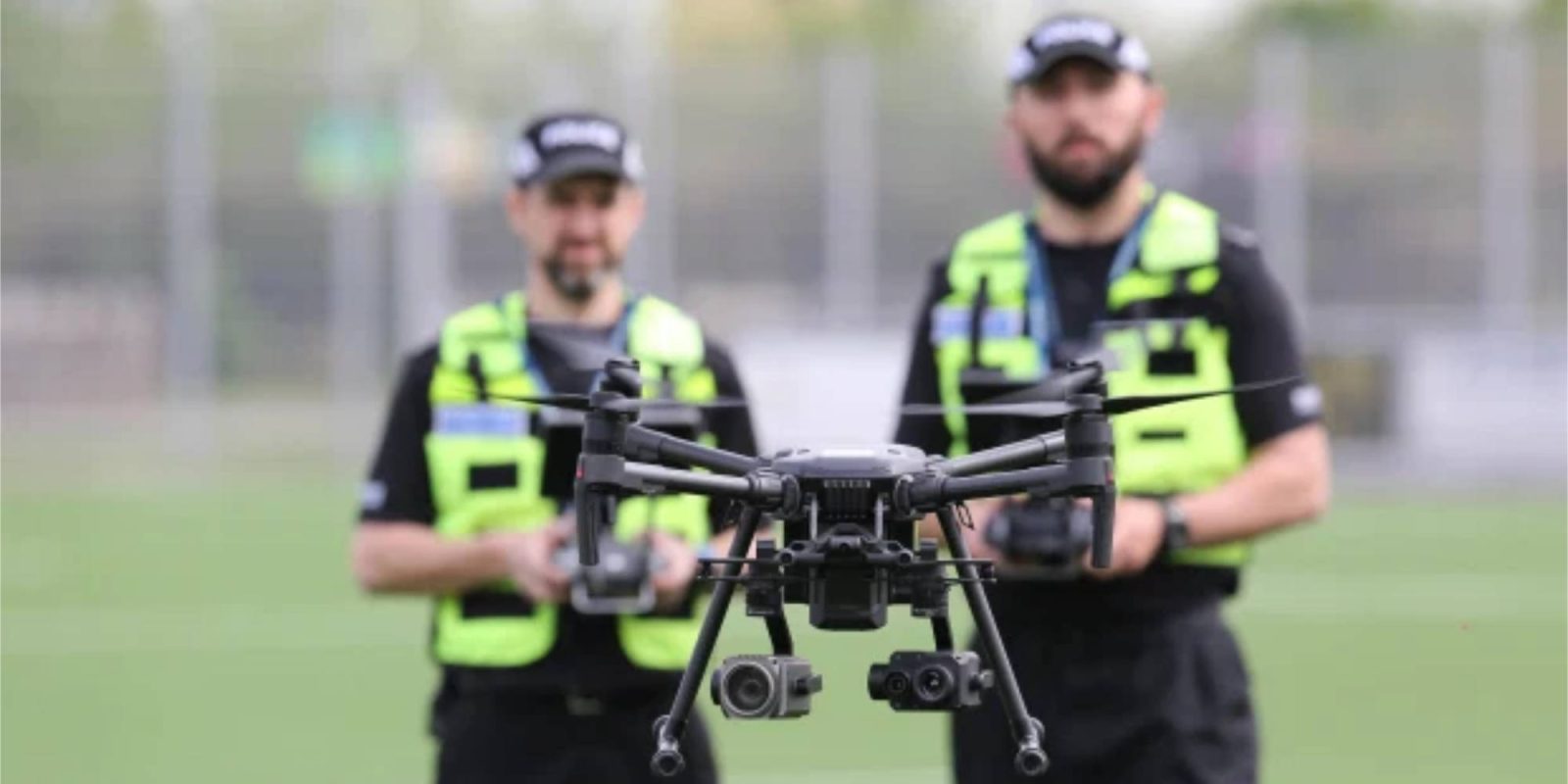
Several police forces in England are participating in beyond visible line of sight (BVLOS) drone tests in what may be the first, careful steps toward long-distance use of the craft for routine surveillance and searches for suspects.
Though it’s not yet entirely clear what that program will involve, the UK’s National Police Air Service (NPAS) has selected four drone-equipped law enforcement divisions to help gauge the “capabilities (BVOLS) may provide to police aviation in the future.” Leading that charge is the Norfolk constabulary, along with those of West Midlands, Thames Valley, and London’s Met. All those participants have experienced UAV units and will presumably get a crack at flights well beyond visual contact once the trials pick up speed.
“This is a complex and detailed piece of research work, involving significant regulatory implications, and is still in its very early, exploratory stages,” the NPAS statement reads. “(Testing) is predominantly in area searches for missing and vulnerable people, suspects, vehicles, and property. The project will not only consider drone types but also command and control and hazard detection systems, to ensure compliance with Civil Aviation Authority (CAA) regulatory policies and procedures.”
As the process advances, many eyes will be on Norfolk, due in part to the depth and diversity of its police drone activity. The unit currently boasts 22 trained UAV pilots and 20 vehicles – a fleet that has expanded quickly in the past year, and will soon add indoor and fixed-wing craft.
Its annual report released late last year said the Norfolk constabulary deployed its drones on police missions or in support of fire services 1,484 times, versus 657 the previous year – the first it possessed those aerial assets. Flights included 329 previously scheduled outings and 1,226 responding to reports of various crimes underway.
Further increases in both the frequency and type of missions flown are expected over time under the UAV boosterism of Norfolk police and crime commissioner Giles Orpen-Smellie, a true believer in their use in law enforcement.
“The drones have the reach, they have the endurance,” he recently told the regional Eastern Daily Press. “There are drones on the market now you can put up for eight hours. The key change in our drone capability would be a beyond line of sight flying permission.”
Though a lot of the UK’s police drone flights have been in search of lost or stranded people and other objectives few people could take issue with, some observers are concerned with the reach that improving tech and BVLOS operations may provide law enforcement officials. The potential of UAVs being flown 20, 30 miles from their bases, and capable of transmitting clear video of people 1,500 feet away, worries people who feel authorities are already relying on surveillance of society far too much.
“Without clear policies in place, we’re concerned that this extreme, militaristic form of surveillance could be used in ways that breach rights and harm democracy, such as spying on peaceful protests,” Silkie Carlo, director of Big Brother Watch, told The Guardian. “Parliament should review the use of drones in policing and develop clear limitations on their use. Until then, police should immediately cease use of drones for generalized surveillance.”
Those concerns may be assuaged in the short term by the CAA’s strict limitations of BVLOS drone flights – including those by police. The nascent testing program notwithstanding, it will probably still be a while yet before cops or anyone else will be able to fire up UAVs and send them to scan people and places many miles distant without special authorization.
FTC: We use income earning auto affiliate links. More.


Comments